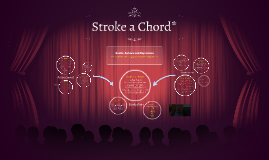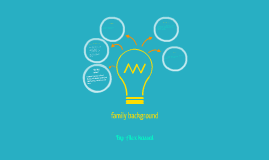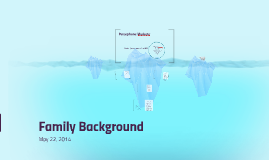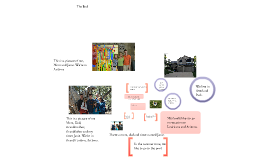Family Background
Transcript: Questions How is her family coping with her being at rehabilitation center for the second time Issues Family Background Extent of positive perception of current life circumstances Aphasia from her left frontal stroke in 2012 Monitored for potential diagnosis of depression Interventions Can you propose an alternative interpretation to that of depression? Schedule follow-ups at indicated times, using the identified NOC rating scales to guide evaluations Depression is a serious condition in stroke patients as it has “an average prevalence of 33% across studies... and post-stroke depression is associated with poorer rehabilitation outcomes and worse health-related quality of life” 1. Tamplin, J., Baker, F. A., Jones, B., Way, A., & Stuart, L. (2013). ‘Stroke a Chord’: The effect of singing in a community choir on mood and social engagement for people living with aphasia following a stroke. NeuroRehabilitation, 32(4), 929-941. 2. Corsten, S., Konradi, J., Schimpf, E., Hardering, F., & Keilmann, A. (2013). Improving quality of life in aphasia—Evidence for the effectiveness of the biographic-narrative approach. Aphasiology, 1-13. 3. Maratos, A. S., Gold, C., Wang, X., & Crawford, M. J. (2007). Music therapy for depression. The Cochrane Library Plus, (4). 4. Robinson, R. G., & Benson, D. F. (1981). Depression in aphasic patients: frequency, severity, and clinical-pathological correlations. Brain and Language, 14(2), 282-291. (too old) 5. Bradt, J., Magee, W. L., Dileo, C., Wheeler, B., & McGilloway, E. (2010). Music therapy for acquired brain injury. Cochrane Database of Systematic Reviews, (7). Music Therapy Lack of communication Social isolation Decreased motivation for rehabilitation Pronounced decrease in quality of life due to the hindrance of identity recollection Identity is created through social interaction with others, telling life stories, and affirming identity through developing the meaning of life * Depression is a common result when language is impaired * Clients dealing with aphasia have a difficult time communicating their needs and thoughts, which subsequently creates emotional distress and frustration What examples can you find to provide evidence that aphasia might be a factor that contributes to her depression? Chosen based on potential to improve confidence, positive moods, social interactions, sense of belonging and self esteem What evidence is there that shows client's frustration with aphasia? Co-morbidity Family Issues What questions did you ask in regards to the issue that are/were critical in understanding the health/social issue and its impact on the family? Extent of understanding conveyed about depression, its treatment, and the prevention of complications Evaluation Providing for safety, stabilization, recovery, maintanence of a patient who is experiencing dysfunction depressed or elevated mood How would you continue to motivate client to participate in rehabilitation if the client is depressed? Evidence of Interventions Timeframe How would you describe the frustration the client is having with aphasia? Nursing Interventions Classification Extent of understanding conveyed about depression, its treatment, and the prevention of complications What is the relationship between aphasia and depression in stroke patients? How would you compare standard care therapy with music therapy? Stroke, Aphasia and Depression Goals & Outcome Choir group Demographic Frustration and outbursts of crying as a result of her inability to communicate with the staff and fellow clients Eventual withdrawals from her social environment, including rehabilitation, due to her inability to cope with her current medical conditions, like aphasia. Interest in music (keyboard and CD player in her room) Therapist assistant brought client to her room and started singing with her Intervention Using music to help achieve a specific change in behavior, feeling, or physiology How does her son having a heart attack influence the clients' condition? What approach would the son use to communicate with the client who has aphasia? Melodic intonation therapy Choir group Structural therapeutic setting 1 Month 3 Months 6 Months 1 Year 2 Years 5 Years Evaluation Evaluate contribution of incorporating her interest to rehabilitation Peer reviewed articles (no older than 2005) (Cobley, Thomas, Lincoln & Walker, 2011, p. 373). Music therapy 1. Music Therapy (4000) 2. Mood Management (5330) Melodic Intonation Therapy What might happen if client's depression-like symptoms are not addressed? Left pons stoke (2014) Left frontal stroke (2012) Anemia (Iron deficiency) Atrial fibrillation Osteoporosis Angiodysplasia Age: 89 Lives in Calgary, born in Munich, Germany Widowed for 18 years Primary Language is German English is second language Completed high school Geriatric Depression Scale: 11/15 Diagnosis For implementating and achieving goals and outcomes Hoping to reduce the feelings of family burden and maintain positive and supportive family

















